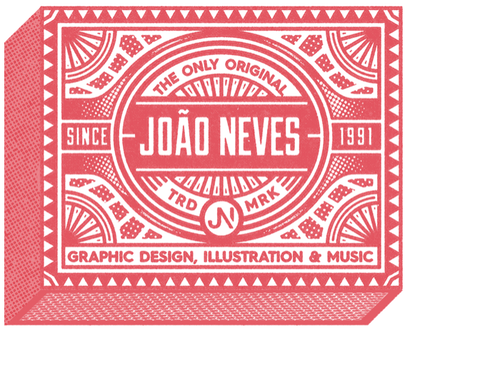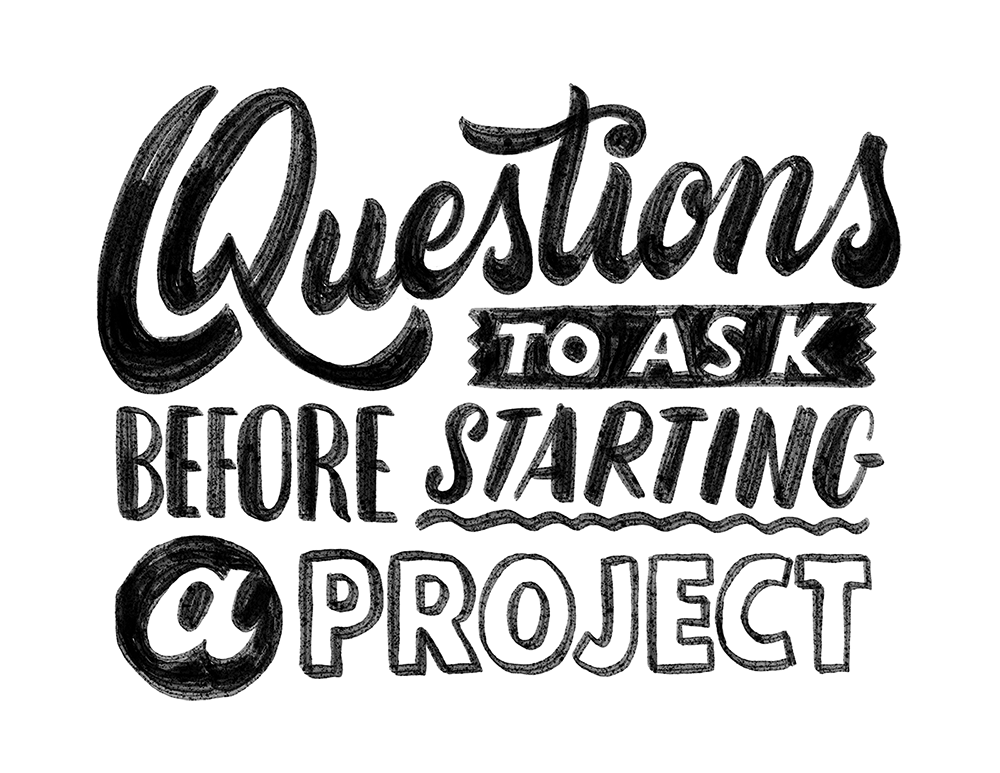There's always an excitement associated with having a new potential client reach out to you with new work. Sometimes you'll receive a very detailed brief and other times a very simple paragraph, but I can't remember a single time when I received a proposal and wasn't immediately filled with questions. The process of debriefing involves raising questions that the client hasn't even thought of, and that will help you save a lot of time; avoid disappointments and also make sure you're meeting the client's expectations. You're not supposed to be a magician who guesses what's going through other people's minds, so you shouldn't be afraid to ask questions no matter how obvious they look. This will in fact make you look professional because after all you're trying to understand your client's business in order to solve their problem as successfully as you can.
What are the deliverables of the project?
While it might seem obvious, asking for the deliverable list will avoid any possible confusions when you're nearing the end of a project. I've collaborated on projects where this wasn't clear in the beginning and I ended up having to adapt the final artwork to numerous formats and sizes. Having an understanding of the scope of the project and what's expected before a project starts will help protect you from doing any extra work in the future.
What will be the usage of the work?
It took me a while to implement this into my budgets due to pure ignorance, but your work will have different value depending on the usage. A poster for an event at a local bar will have a different impact compared to creating typography for a nation-wide campaign that will run on print, online and TV for one year. When I first started freelancing I used to think that every project was a complete buyout, which means the client will own all the rights to the artwork and would be able to do whatever they want with it, and this couldn't be further from reality. When you create something for a client that doesn't entitle them to unlimited usage of the art, unless it's explicitly told so in the beginning. Knowing this will help you estimate a quote that fits the needs of any specific project.
Do you have any references?
I like to ask for visual references every time I start a new project so I can get a better understanding of the client's vision. A picture is worth a thousand words and that's especially true when you're starting to work on a new project. In an ideal world each client would already have some references that they think are relevant, but if they don't have a clear direction I find it helpful to create a moodboard and get it approved. This way I have at least a reference point before getting my hands dirty.
Are there any brand rules I should be aware of?
When you start working with a new client you have to keep in mind that each brand could already have their own identity and visual footprint. This is extremely relevant if you're creating visual content because you might have to adapt your work to follow the brand guidelines. This could be either the usage of typography, layout requirements or even which colors you can use or not. Nobody wants to start working on a project only to find out in the middle of the process that you can't use a specific element because it doesn't meet the requirements of their brand guidelines.
Can you clarify what you mean by ___?
Understanding the brief is the number one priority on this list because it's crucial that all your questions are answered before you start doing any of the work. I like to rewrite the brief in my own words and ask the client to confirm that everything is correct to make sure everything is clear and nothing got lost during the communication. I’ll say it again: don't be afraid to ask anything even if you think the answer is obvious. There are no stupid questions when you're trying to understand the client's needs and expectations for a project.
What's the estimated budget?
Imagine this: you're spending weeks going through emails and meetings negotiating a potential branding project, only to realize at the end that the client has a really small budget that doesn't even cover your electricity cost. This can be easily avoided by asking what's the available budget beforehand. While it could make sense to ask this question, it also puts the client in a tricky situation, because most potential clients don't like sharing their budget and prefer you to send an estimate first, hoping that it will be lower than their available budget.
What can you do when this happens? If I see the client is reluctant to share their budget or doesn't even know how much a service like this would cost, I send a pricing range instead of a specific number so you can at least know if they can afford you or not before dedicating your time negotiating. This is helpful because it potentially avoids wasted time and allows us to know how to maximize what can be done with the available budget. It's up to the designer to provide a solution that fits the client's availability, which is why I rarely lower my prices to get a job and instead choose to adapt the scope of the project to the available budget.
Do you have a deadline for the project?
The clock: the designer's best friend and worst enemy. A detailed timeline is crucial for the success of any project, wether if the client says they need it finished "ASAP" or they say they aren’t in a rush to get the project finished. Having a clear vision of the project timeline not only helps you organize the process and have a clear vision of all the steps of the project but also motivates both the client and designer to respect each other's time. That's why I say the clock can be a designer's best friend: projects that drag on for too long are very common and that happens because there wasn't a clear understanding of the timeline beforehand. If I feel the deadline is too short for the amount of work, I usually try to see if there's any flexibility to discuss extending the delivery dates or suggest to decrease the amount of work.
These are just some of the long list of questions that you can ask before accepting a project but they're the ones I make sure I completely understand before I accept doing any project.
Let me know your thoughts in the comments and if I’ve missed any other important questions.

